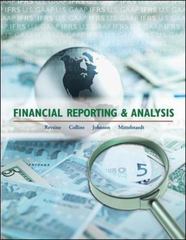Question
1. A monopoly sells its good in the US and Japanese markets. The American inverse demand function is pA = 100 - QA, and the
1. A monopoly sells its good in the US and Japanese markets. The American inverse demand function is pA = 100 - QA, and the Japanese inverse demand function is pJ = 80 - 2QJ, where both prices, pA and pJ, are measured in dollars. The firm's marginal cost of production is m = 20 in both countries. If the firm can prevent resale, what price will it charge in both markets? (Hint: the monopoly determines its optimal (monopoly) price in each country separately because customers cannot resell the good.)
2.Warner Home Entertainment sold the Harry Porter and the Prisoner of Azkaban two-DVD movie set around the world. Warner charged 33% more in Canada and 66% more in Japan than in the United States, where it charged $15. Given that Warner's marginal cost was $1, determine what the elasticities of demand must have been in the United States, Canada and Japan if Warner was profit maximizing.
3. Using math, show why a two-part tariff causes customers who purchase few units to pay more per unit than customers who buy more units.
4. Microsoft sells two types of office software, a word processor it calls Word, and a spreadsheet it calls Excel. Both can be produced at zero marginal cost. There are two types of consumers for these products, who exist in roughly equal proportions in the population: authors, who are willing to pay $120 for Word and $40 for Excel, and economists, who are willing to pay $50 for Word and $150 for Excel.
a) Ideally, Microsoft would like to charge authors more for Word and economists more for Excel. Why would it be difficult for Microsoft to do so?
b) Suppose that Microsoft execs decide to sell Word and Excel separately. What price should Microsoft set for Word? (Hint: Is it better to sell only to authors, or to try to sell to both authors and economists?) What price should Microsoft set for Excel? What will Microsoft's profit be from a representative group of one author and one economist?
c) Suppose that Microsoft decides to bundle together Word and Excel in a package called Office, and not offer them individually. What price should Microsoft set for the package? Why? How much profit will Microsoft generate from a representative group of one author and one economist?
d) Does bundling allow Microsoft to generate higher profit then selling Word and Excel separately?
Step by Step Solution
There are 3 Steps involved in it
Step: 1

Get Instant Access to Expert-Tailored Solutions
See step-by-step solutions with expert insights and AI powered tools for academic success
Step: 2

Step: 3

Ace Your Homework with AI
Get the answers you need in no time with our AI-driven, step-by-step assistance
Get Started


